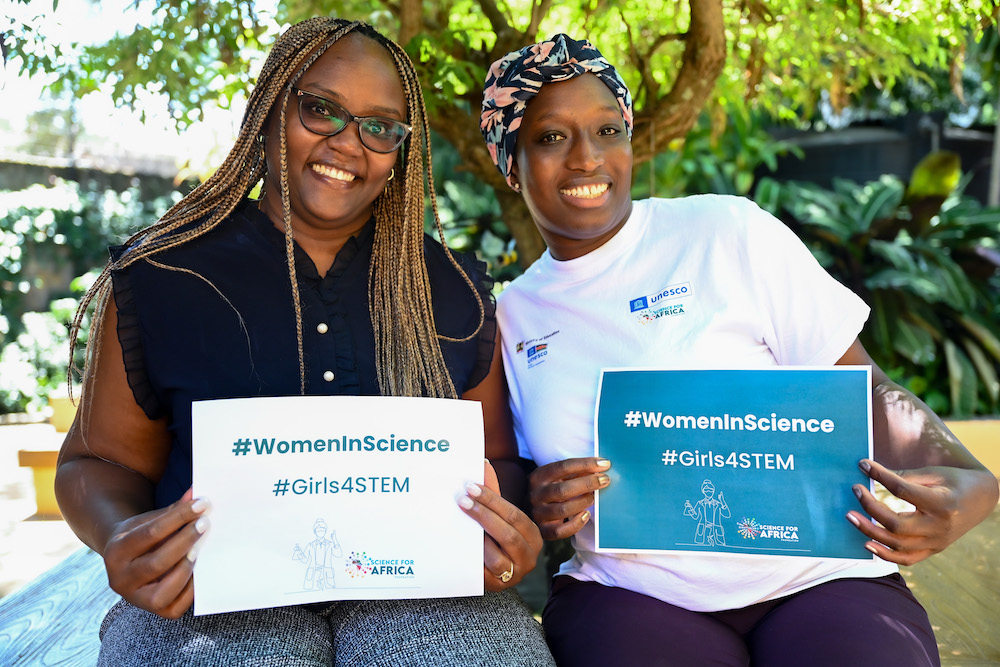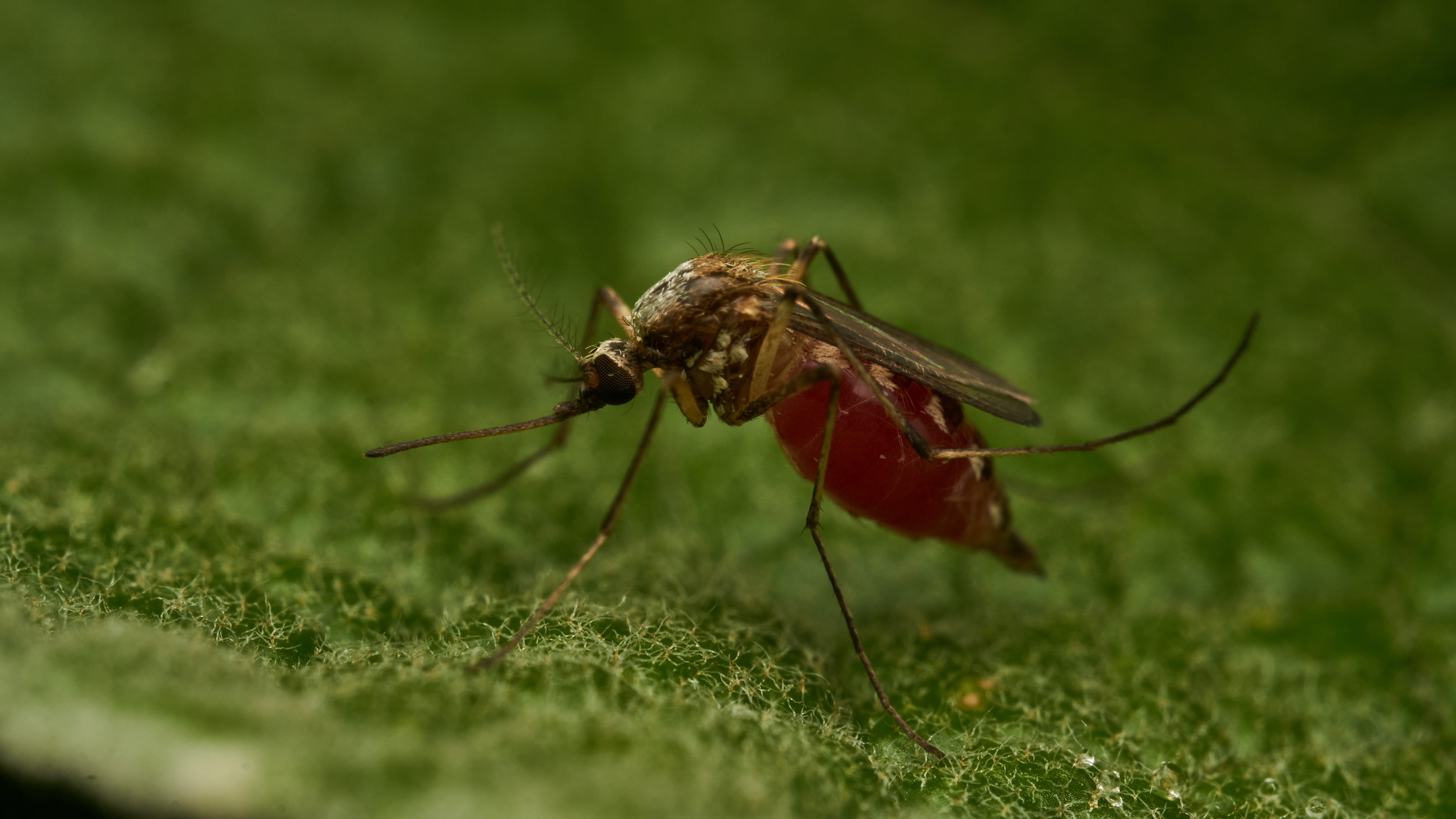
Impact Stories
Closing the gender gap for women and girls in science
Friday, March 8, 2024

By Doris Wangari and Fatu Badiane
Science thrives on innovation which can only flourish when diverse minds and perspectives come together. Yet women remain underrepresented in many scientific fields, Globally, according to the World Economic Forum, women comprise less than 30% of science researchers worldwide. Despite the decades-long trend globally of increasing participation of girls in science, technology, engineering, and mathematics (STEM) through programming such as Global Engineer Girl, GirlHype, and Girls Who Code, there is poor retention of these individuals as they continue in their secondary education. Worldwide, it is estimated that women compromise less than 20% of engineering graduates and less than 2% of engineering professionals, as reported by the World Economic Forum.
The figures are equally critical when trends in early education are examined. In Southern Africa, for example, girls have higher secondary enrolment than boys but are less likely to complete their education, this reality is not limited to southern Africa. In addition, of those who do complete secondary education, their proficiency in subjects like math and science lags behind boys. Gender norms, stereotypes, biases and harassment push girls and women away from STEM fields, and there is general insufficient lack of funding and resources for science across Africa. To change the status quo, one must look more deeply at hindrances to gender equality in science, explore potential solutions, and empower men to become allies in this crucial journey.
The gender gap in science reflects more than numbers: it's a complex issue rooted in social, cultural and institutional factors. From a lack of role models and mentorship programmes to unconscious bias and discriminatory practices, women face numerous hurdles throughout their scientific careers. These obstacles discourage young girls from pursuing science, technology, engineering, and mathematics (STEM) fields and hinder the progress of many women already in the field. However, young and black women in science are not powerless. There are several actions we can take to close this gap by collectively challenging biases and stereotypes in educational institutions and workplaces.
Efforts to advance girls and women in science has already shown results. For example, research training programmes that are designed with special consideration for issues that disproportionately impact the advancement of women – notably, pregnancy and childcare -- produce an increase in active programme enrolment and completion by women. For example, an overview of the Consortium for Advanced Research Training in Africa program, published in The Conversation, reported similar on-time graduation rates between men and women from graduate programs that implemented gender-sensitive policies. Developing gender-sensitive policies that do not penalise women for taking leave during or before a program to raise children also helps to level the playing field. Women have the potential to successfully pursue their degrees and become role models and mentors for the next.
All members of society have a stake in reshaping cultural norms, creating an environment where women feel valued and supported. This includes promoting women to leadership roles, providing training on unconscious bias, and fostering open communication. Organisations and institutions need clear policies and transparent reporting mechanisms to hold themselves accountable for promoting gender equality. This includes collecting data on the representation of women at various stages and making this data publicly available.
The Science for Africa (SFA) Foundation sustains a 50:50 gender balance in its executive management, and women constitute 58% of overall staff. The Foundation recognises that the gender gap can reinforce other forms of interconnected inequalities, which is why its values are firmly anchored in Diversity, Equity and Inclusion as core principles in everything we do. We foster an inclusive environment that values the unique contributions of all individuals. This commitment is reflected in initiatives such as providing work flexibility for nursing mothers, establishing a fully equipped mothers' room, and celebrating International Women's Day and other relevant occasions.
We share our personal experiences to illuminate the challenges women face, hoping to inspire community strength and change.
Dr Fatu Badiane, a cancer biologist, recently spoke to over 1500 girls from St. Francis Misyani Girls High School, in Machakos county, Kenya, on the occasion of the 9th International Day for Women and Girls in Science 2024. She described attendance at an all-women’s’ college, studying biology, physics, chemistry, organic chemistry and biochemistry, where she enjoyed the community of teachers and fellow students who shared her passion for science. This community enriched and enlightened her, ultimately inspiring her to continue her studies, earning a PhD in biology and becoming a scientist.
Ms Doris Wangari is also a champion for women in science. Driven by a deep conviction that biosciences hold the solution to Africa's most pressing challenges – poverty, disease, food insecurity, and climate change – she pursued her education in microbiology and biotechnology. She felt that every experiment was a thrilling step closer to her determination to impact lives. She now advocates for sustained technical and financial support for African researchers to strengthen the Science, Technology, and Innovation (STI) ecosystem across Africa, through Grand Challenges (GC) Africa.
GC Africa prioritises funding to projects led by women researchers, those tackling gender barriers, and/or programs that offer skills training for women. Notably, 30% of Requests for Proposals (RFPs) received by Grand Challenges Africa over the past nine years boast female lead/principal investigators, a testament to the initiative's focus on empowering women. The program also collects and analyses data on gender equality indicators to contribute to the understanding of culture-specific gender dynamics.
Men have an important role to play in helping to unleash the contributions of all to build the African scientific research enterprise. They can work to counter harmful stereotypes, foster inclusive workplaces, and be powerful allies by actively supporting women and girls in their professional and personal journeys. This can include general support in the form of advocacy for equal opportunities, individualised mentorship, career guidance and financial sponsorship. The global movement "HeForShe", launched by UN Women, encourages all people to stand in solidarity with women to create a bold, visible and united force for gender equality. By amplifying the voices of women and girls, challenging harmful biases, and advocating for equal access to resources and opportunities, men can become invaluable allies in building a more equitable future for all.
By acknowledging challenges, celebrating successes and taking concrete action, we can create a world where science thrives on the talents and contributions of everyone. We have the power and opportunity to shatter the glass ceiling, empowering women to reach their full potential and drive scientific progress for all.
References:
Opinion: How can we get more girls into STEM in Africa? | World Economic Forum (weforum.org)
What can be done to better support women pursuing their PhDs in Africa (theconversation.com)
Female scientists in Africa are changing the face of their continent (nature.com)
The authors are Senior Programme Officers, at the SFA Foundation



